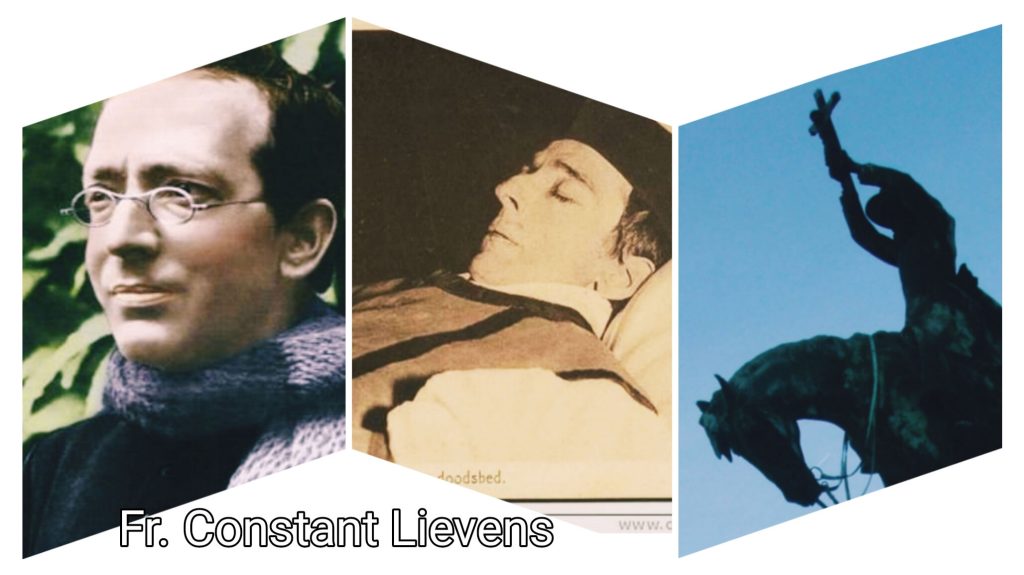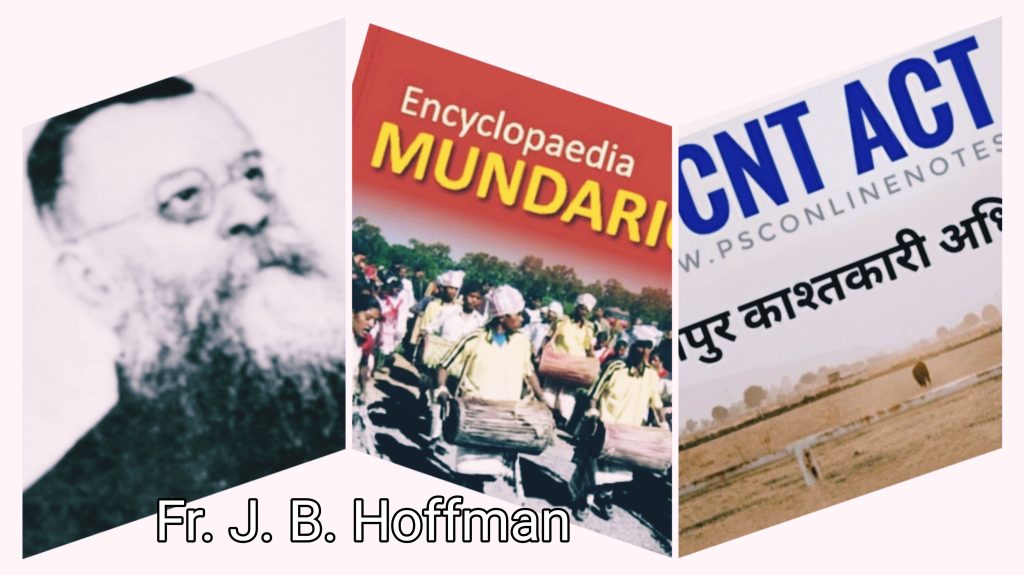P. A. Chacko S. J.
Fr. Constant Lievens and Fr. J. B. Hoffman: Two great Jesuits and pillars of the Chotanagpur missionary venture in tribal dominated central India.
Their missionary approach had a distinctive flavour. Their Good News proclamation started with the ground realities of the tribals.

Belgium born Fr. Lievens ( 11 April 1856- 7 Nov. 1893) charted out earnestly in helping the victims of land related matters and litigations.
From 1885 on, he dedicated himself in helping the tribal people to get their illegally lost land redeemed. Land mattered as an important source of existence. The landlordism that thrived in the area had deprived many people of this lifeline.
Lievens understood it very well. Hence, his visionary mission among Mundas and Oraons.
Equipped with the knowledge of tribal customary and ancestral laws, he defended the victims in the colonial courts. To his credit, he made the colonial magistrates accept the validity of the non-written tribal customary and ancestral laws.
Later, he shifted from Torpa and made Ranchi his headquarters to coordinate missionary activities comprising of social work, education and evangelization.
No wonder, the tribals accepted him as their saviour who brought Jesus’ Good News of liberation.
Today Livens is a Servant of God in the Church and is on the way to the declaration of his sainthood. The Church acknowledges him as the Apostle of Chotanagpur. Process is on for his beatification. His last remains were brought back from Belgium and are interred in the Ranchi Archdiocesan Cathedral.
J. B. Hoffman
Germany born Johannes Baptist Hoffman ( 21 June 1857 – 29 Nov. 1928) was a linguist and a scholar who used full well his knowledge and expertise in Good News Proclamation in the tribal dominated central belt of India.

Hoffman studied tribal laws and customs. At that time, a rebellion among the Mundas was brewing as they were agitating against the exploitative landlord system. Tribal land was getting alienated on flimsy grounds. Hoffman made successful interventions with the colonial government to make them understand that its legal system was flawed and weighed heavily against the poor tribals. A change of the law was imperative. He made the colonial regime ubderstand that legal weight be accorded to tribal customary and ancestral laws. Hence, the government opted for a land survey. Hoffman was fully involved. The final outcome of the operation was the legislation of the Chotanagour Tenancy Act, 1908. It was a protective legislation. The CNT Act,1908, is still in force.
Hoffman’s next contribution was the formation of a farmer-oriented agricultural credit society named the Chotanagpur Catholic Cooperative Credit Society (1909). The purpose was to help the tribal farmers to stay clear of the exploiting money lenders and landlords.
In addition, as a distinguished scholar, Hoffman has many literary gems to his credit:
Mundari Grammar (1903), 16 volume Encyclopedia Mundarica,
Mundari poetry, Music and Dances (1907), Social Work in Chotanagpur ( 1909), Chota Nagpur Katholic Bank (1910), CNT Act 1908, Principles of Succession and inheritance among the Mundas(1915), et al.
These two great missionaries had their fingers on the pulse of the people. Thanks to their strenuous efforts, the Chotanagpur Church has thrived.